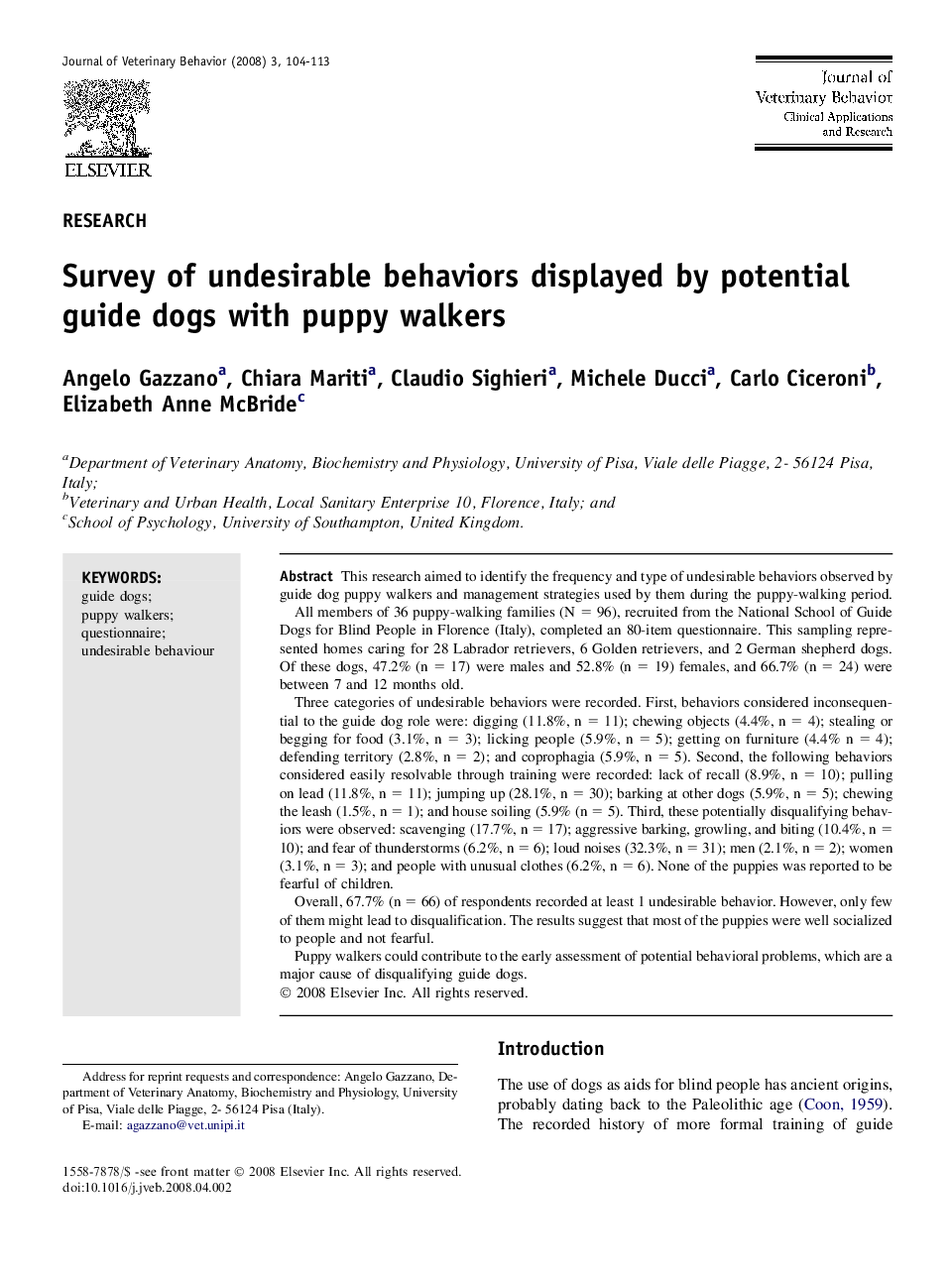| Article ID | Journal | Published Year | Pages | File Type |
|---|---|---|---|---|
| 2399832 | Journal of Veterinary Behavior: Clinical Applications and Research | 2008 | 10 Pages |
This research aimed to identify the frequency and type of undesirable behaviors observed by guide dog puppy walkers and management strategies used by them during the puppy-walking period.All members of 36 puppy-walking families (N = 96), recruited from the National School of Guide Dogs for Blind People in Florence (Italy), completed an 80-item questionnaire. This sampling represented homes caring for 28 Labrador retrievers, 6 Golden retrievers, and 2 German shepherd dogs. Of these dogs, 47.2% (n = 17) were males and 52.8% (n = 19) females, and 66.7% (n = 24) were between 7 and 12 months old.Three categories of undesirable behaviors were recorded. First, behaviors considered inconsequential to the guide dog role were: digging (11.8%, n = 11); chewing objects (4.4%, n = 4); stealing or begging for food (3.1%, n = 3); licking people (5.9%, n = 5); getting on furniture (4.4% n = 4); defending territory (2.8%, n = 2); and coprophagia (5.9%, n = 5). Second, the following behaviors considered easily resolvable through training were recorded: lack of recall (8.9%, n = 10); pulling on lead (11.8%, n = 11); jumping up (28.1%, n = 30); barking at other dogs (5.9%, n = 5); chewing the leash (1.5%, n = 1); and house soiling (5.9% (n = 5). Third, these potentially disqualifying behaviors were observed: scavenging (17.7%, n = 17); aggressive barking, growling, and biting (10.4%, n = 10); and fear of thunderstorms (6.2%, n = 6); loud noises (32.3%, n = 31); men (2.1%, n = 2); women (3.1%, n = 3); and people with unusual clothes (6.2%, n = 6). None of the puppies was reported to be fearful of children.Overall, 67.7% (n = 66) of respondents recorded at least 1 undesirable behavior. However, only few of them might lead to disqualification. The results suggest that most of the puppies were well socialized to people and not fearful.Puppy walkers could contribute to the early assessment of potential behavioral problems, which are a major cause of disqualifying guide dogs.
